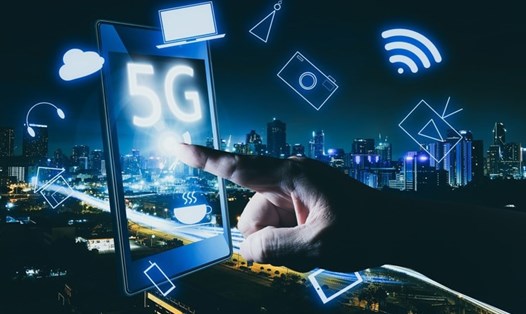Accordingly, in the press release of both companies, Apple will pay Qualcomm a financial amount accompanied by a 6-year chip supply agreement, effective from April 1, showing that Apple will buy Qualcomm chips for the iPhone in the future. Both companies did not say how much the payment was.
After this information, Qualcomm shares immediately increased by 20%, bringing the market capitalization increase by about 14.5 billion USD to more than 84 billion USD. This is considered Qualcomm's best increase since 1999.
This information was given in the context of Huawei founder Ren Zhengfei's recent announcement of "openness" to Apple in selling 5G chips: "We are completely open in selling 5G chips to Apple".
If the partnership with Apple becomes a reality, Huawei will also have a large revenue from the chip business because iPhone sales in the past 4 years have increased and decreased but have been stable at over 200 million units/year. This will further increase Huawei's influence in the phone industry market share.
As for Apple, it certainly does not need Huawei's Kirin980 processor, but the 5G chip will be a proposal worth considering. Currently, major competitors of the deficient apple such as Samsung and Motorola have quickly launched 5G phone models while Apple is still quiet.
From 2011 to 2016, Apple relied on Qualcomm as the sole supplier of such chips, helping the iPhone connect to wireless networks.
Since 2016, Apple has jointly chosen Intel and Qualcomm. But by 2018, Apple switched to using only Intel-made chips for its latest phones.
According to Tony Blevins - Apple's supply chain director, Apple has also considered collaborating with MediaTek and Samsung - one of the biggest competitors in the smartphone market to provide chips for the next generation iPhone with wireless network, 5G.
In the past, Apple has "lost steam" in the race for network connectivity compared to its competitors. The first iPhone model did not have a 3G connection and the first smartphones to support the LTE-A 4G platform were not from Apple.
Analysts believe that the dispute between Qualcomm and Apple could slow Apple's plans to launch products that support next-generation 5G networks. Qualcomm is one of the leading chip suppliers that can connect to the 5G network. The new agreement between the two companies opens up the possibility that Apple could release the iPhone 5G earlier than expected with Qualcomm's modem chip technology.
5G is the next-generation network technology on the current 4G platform and is expected to explode from the end of 2018 on smartphones. High Internet access speeds of up to 10Gb/s and reduced latency when connected up to dozens of times compared to 4G are considered the main advantages of the future 5G mobile network infrastructure.











